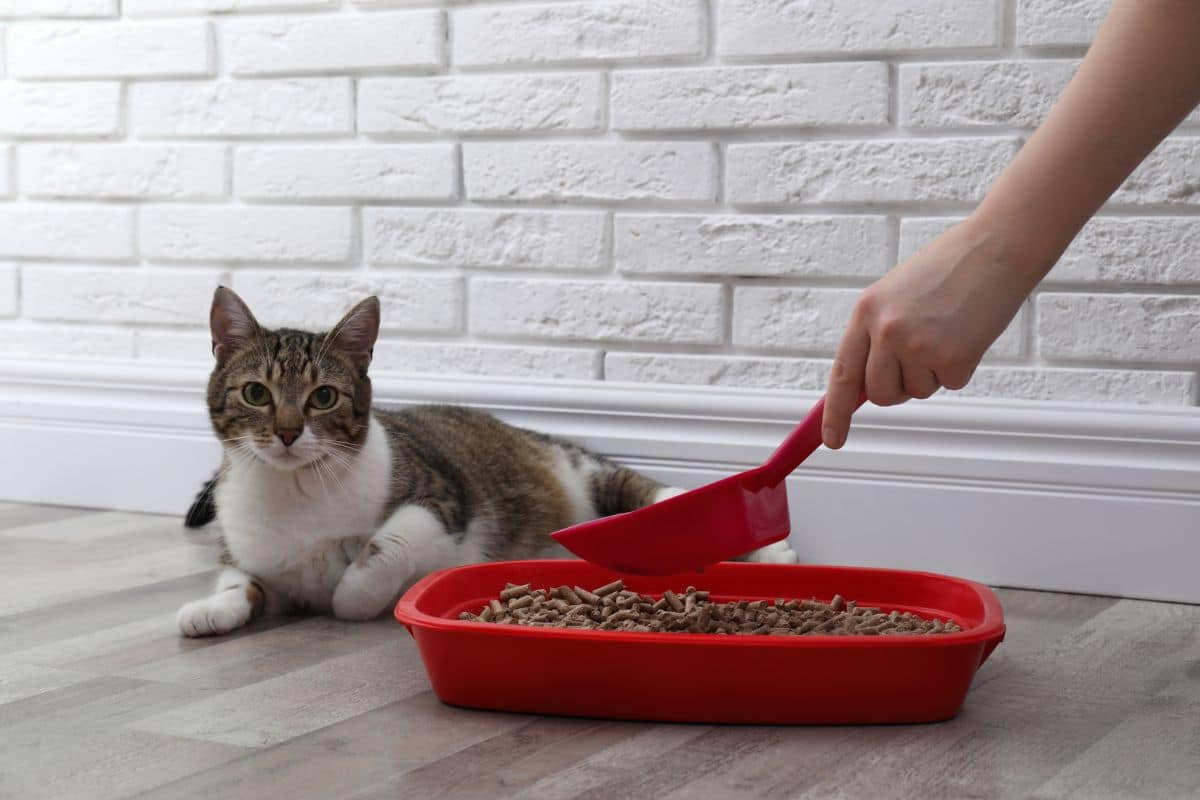It’s a horrifying scene: you wake up to a pungent odor, only to find your beloved senior cat has left a gift on the rug, right next to their litter box. While it can be frustrating and worrisome, it’s important to remember that your cat’s sudden change in bathroom habits is usually a sign of something else. They’re not doing it intentionally to upset you. In fact, they’re likely feeling incredibly uncomfortable and confused.

Image: petmaximalist.com
This article dives into the common reasons behind your elderly cat’s bathroom mishaps and offers practical tips to get things back to normal. Understanding the potential causes can help you navigate this challenging situation and find solutions to restore peace and cleanliness in your home.
Understanding the Underlying Reasons
Senior cats, like senior humans, often face age-related changes, and their elimination habits are no exception. A combination of factors can contribute to a sudden change in litter box behavior. These can range from easily treatable issues to more serious medical conditions.
Common Culprits
The most frequent causes of inappropriate urination and defecation in elderly cats include:
- Cognitive Decline: As cats age, they may experience cognitive decline similar to dementia in humans. This can manifest as confusion, disorientation, and difficulty remembering where their litter box is.
- Arthritis: Painful joints can make it difficult for your cat to navigate the litter box, especially if it’s high-sided or the litter is too deep.
- Urinary Tract Infections (UTIs): UTIs are quite common in older cats and can cause frequent urination, straining, and blood in the urine.
- Feline Lower Urinary Tract Disease (FLUTD): This condition, which can range from simple cystitis to more serious bladder inflammation, can cause pain during urination.
- Incontinence: Some senior cats may experience involuntary urination due to age-related changes in their bladder muscles.
- Kidney Disease: Cats with kidney disease often have increased thirst, resulting in increased urination, which can sometimes lead to accidents.
- Constipation: A sluggish digestive system can lead to constipation, making it difficult for your cat to pass solid waste, potentially causing them to relieve themselves outside the box.
- Gastrointestinal Issues: Irritable bowel syndrome, inflammatory bowel disease, and other digestive disorders can also cause diarrhea and accidents.
Navigating the Challenges
When confronted with your senior cat’s bathroom blunders, it’s crucial to remain calm and approach the situation with understanding. Avoid punishment, as this can only worsen their anxiety and anxiety can exacerbate the issue. Instead, focus on identifying the cause and taking appropriate action.

Image: petkeen.com
Tips for Tackling the Problem
Here’s a step-by-step guide to addressing your cat’s sudden change in elimination habits:
- Vet Visit: The first and most crucial step is to schedule a vet appointment. Your vet can perform a thorough physical exam, analyze urine and stool samples, and rule out any underlying medical conditions.
- Litter Box Evaluation: Consider all aspects of the litter box, including size, location, type of litter, and frequency of cleaning.
- Multiple Boxes: For senior cats with cognitive decline, providing multiple litter boxes in different areas of the house can increase their chances of finding one.
- Accessibility: Ensure the litter box is easily accessible to your cat. This may require switching to a low-sided box, reducing the depth of the litter, or positioning the box in a location without obstacles.
- Litter Type: Experiment with different types of litter. Some cats have preferences for certain textures or scents.
- Cleaning Routine: Keep the litter box impeccably clean by scooping it out daily. Consider a self-cleaning litter box for added convenience.
- Stress Management: A stressful home environment can contribute to anxiety and behavioral issues. Keep your cat comfortable by minimizing stress-inducing changes.
Remember, patience is key. It may take some time to determine the root of the problem and find the right solution.
FAQ
Q: What can I do if my cat is suddenly pooping outside the box, but they are otherwise acting normal?
A: While accidents can happen occasionally, if your cat is exhibiting consistent bathroom issues, schedule a vet check-up. There might be an underlying medical issue, even if they seem otherwise well.
Q: Can I use harsh cleaners to clean up accidents?
A: No, you should avoid harsh cleaners like bleach as they can be toxic and potentially hazardous to your cat. Opt for pet-safe cleaning products or a diluted vinegar solution.
Q: I’ve tried everything, and nothing seems to be working. What should I do?
A: It’s understandable to feel frustrated. Consult your veterinarian for further guidance. They might recommend additional diagnostic tests or refer you to a feline behaviorist.
Why Is My Elderly Cat Suddenly Pooping On The Floor
Conclusion
While it’s certainly unsettling to deal with your elderly cat’s sudden bathroom mishaps, understanding the potential causes and adopting practical solutions can help you navigate this challenge. Remember, your cat isn’t intentionally trying to cause trouble. By providing them with a clean, accessible litter box, minimizing stress, and seeking professional veterinary assistance, you can help your senior cat live comfortably and happily in their golden years.
Are you facing similar challenges with your senior cat? Share your experiences and tips in the comments below!






